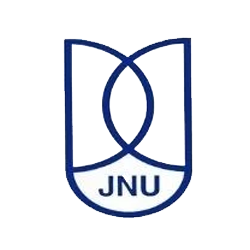

Jawaharlal Nehru University
New Delhi, Delhi
Jawaharlal Nehru University (JNU) was established in 1969 by an act of the Indian Parliament. It was named after India's first Prime Minister, Jawaharlal Nehru, and was founded with the vision of promoting inclusive education and progressive thought. The university was designed to be a space for critical thinking, social justice, and interdisciplinary studies.
JNU Official website https://www.jnu.ac.in/main/
Over the years, JNU has become one of India’s most prominent centers for postgraduate education and research, particularly in the fields of social sciences, humanities, and international studies.
Facilities
JNU is located in a sprawling 1,000-acre campus in New Delhi, surrounded by forested areas and wildlife. The campus is known for its open, green spaces and peaceful environment. Key facilities include:
Central Library – one of the best academic libraries in India with vast digital and print collections.
Computer Centre – provides internet and IT services to students and faculty.
Hostels – well-maintained hostels for both male and female students, including international students.
Sports Complex – facilities for games like football, cricket, volleyball, basketball, and indoor games.
Health Centre – a fully functional medical facility with doctors and emergency services.
Academic and Research Centres – state-of-the-art infrastructure for research in various disciplines including biotechnology, international relations, and languages.
Reputation
JNU is widely regarded as one of India's top universities, particularly for liberal arts, social sciences, and research. It is known for its vibrant student activism, academic freedom, and emphasis on intellectual debate. The university has consistently ranked among the best in national and international university rankings. JNU has produced many notable alumni, including diplomats, economists, authors, civil servants, and political leaders.
The university is also recognized for its progressive academic culture and inclusive policies, offering reservations and support systems for marginalized communities.
